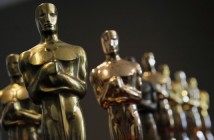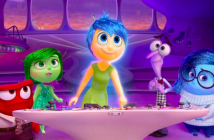Editor’s Note: to see the Next Projection team’s collective top ten, click here “Do you know how many stars are in the universe?” ventures the young protagonist at one juncture of Annemarie Jacir’s excellent When I Saw You, one of many movies that could have occupied the oncoming list, indeed might were I to rewrite it this day next week. Do you know how many movies are in a year? In excess of one thousand in 2014, if we’re to limit ourselves to NYC theatrical releases, which—given a third of my own list last year came from VOD-only releases—would be unwise. What curious things these top tens are, efforts to overview The Year in Film from a sample size all-but irrelevant as an overall percentage. For December I despaired, clambering to track down those movies I’d missed that seemed Important, that might manage to make their way onto my own oh-so-objective snapshot of another four seasons in cinema. But to do so, of course, is to perpetuate the problematic cycle of must-sees and contenders that we like to forget is as overbearingly influential on critics’ lists as to the HFPA and the Academy, centring consensus and pushing peculiarities to the peripheries. We are all in the gutter, and in a sky full of stars we’re all staring at the same constellations year after year. So balls to brooding over never-caught-its, sorry-to-have-missed-its, and really-should-have-seen-its: the 180-ish films I saw eligible for consideration here may be down dreadfully from 2013’s 254, but I am glad to have struggled to settle on just ten. Goodness knows how this will all hold up in twelve months’ time—my 2012 list remains, I think, unchanged to this day; my 2013 pack had a new leader within a week—but I know how it holds up right now: as a celebration of some new movies I loved this year, and that I’d love you to share in. Few would have predicted the next film from Vincent Patar and Stéphane Aubier, the Belgian maestros behind the madcap stop-motion magic of A Town Called Panic, one of this young century’s most exceptional animated offerings, could seem so comparatively canon. But the ingenious duo, in pairing with Oscar-nominated A Mouse’s Tale director Benjamin Renner to adapt a much-beloved series of children’s novels, have not so much made a traditional animated picture as reminded us how reductive any such appellation is. Sketched in gorgeous pastel shades that play like the storybooks’ pages passed through a projector, Ernest & Celestine is a movie alive with the abilities of its medium, spinning a superbly silly yarn of inter-species animosity into an enormously emotive tale of embracing difference that might be more necessary for adults accompanying their child’s viewing than the kids themselves. “I’m not your nightmare,” the eponyms assure each other in one of the movie’s many majestic sequences; Ernest & Celestine, meanwhile, is the stuff of dreams. Aesthetically indebted to the spiritually ponderous cinema of the time of its setting—think of the likes of Winter Light—Pawel Pawlikowski’s stunning study of selfhood in a snow- and smoke-shrouded post-war Poland might be the most beautifully-framed movie of the year, ironically espousing the impossibility of ever really containing past or present with its tight ratio and excess of overhead space. Hot off the desperately dull The Woman in the 5th, Pawlikowski enacts the sharpest and most satisfying turnaround of the year, delivering in Ida a picture of historicity free of all histrionics. To declare Agata Trzebuchowska’s the debut performance of the year is to do it a disservice: this is one for the ages, a delicate and dynamic show of curiosity and containment that meets the fragility of Maria Falconetti’s Joan of Arc with the frankness of Ingrid Thulin in the aforesaid Bergman. Less a coming-to-terms with the Holocaust than an effort to establish identity in a world so dreadful, here is a film that does as well for its audience as for its chief character. Indulgent, excessive, overbearing, and endlessly affecting for it, Joachim Pinto’s year-in-the-life study of an experimental new treatment for HIV is a work of astonishingly evocative honesty that captures human consciousness in a way next-to-no others have. Drugged-up and despairing, the director-cum-subject agonisingly intercuts his all-hours anguish with stirring scenes from the life to which he tries desperately to cling, movie and mindset intertwining in a nightmarish haze of transport and treatment. Inevitably assuming a role far larger than he vowed to limit himself to at the outset, Pinto’s partner Nuno helps transform What Now? Remind Me from a staggeringly sad deathbed diary to, perhaps, the greatest love story of the year, less for the particularities of their passion than the prevailing power of compassion to which they gesture. Neither foolish nor fortunate, Pinto has made something seismic here: a movie of superlative structure with a fever-dream sensibility to make such enormous achievement seem entirely accidental. That what seems at the start so singular a cinematic experience should turn toward something comparably conventional en route to an endpoint is the terrible tragedy of Under the Skin, a movie that might easily have topped this list had it stayed the course. But as much as this meta-textual musing on gender and identity politics may bow to a more basic binary as it hits the highlands, Jonathan Glazer’s third feature outing as director is an undeniably awesome achievement in screen storytelling, boasting a moment so scary I screamed in the cinema. Kubrick comparisons of course abounded all year, but it’s really Nic Roeg to whom the film makes Glazer seem heir apparent: from its The Woman Who Fell to Earth conceit to the Jagger-esque edge that inflects Scarlett Johansson’s mercurial performance, Under the Skin thrives on that same seventies sci-fi sensibility that saw other(worldli)ness as a route to understanding ourselves. For all its sadly skimmed potential, this is a successor worthy indeed. Embracing potential is the name of the game in the latest from Denis Villeneuve, which opens on eerie oddity and proceeds only to get stranger still from there. Jake Gyllenhaal will continue to earn plaudits for his perky performance in the seventies cinema mash-up that is Nightcrawler, but it’s his dual performance here as Torontonian doppelgängers that’s the true career peak. Like the inevitably comparable The Double, Enemy is a film alive with obvious influences—from locations to cast to concept echoing Dead Ringers, Cronenberg comes to mind almost immediately—but unlike Ayoade, Villeneuve has made a movie all of his own, a strange and even sublime synthesis of his own aesthetic predilections with the literate density of José Saramago’s source novel. Making Roger Deakins’ work on Prisoners seem positively peppy by contrast, Nicolas Bolduc’s suffocatingly smoggy cinematography joins Danny Bensi and Saunder Jurriaans’ brilliantly oppressive score to craft the most unpleasantly and inescapably intoxicating atmosphere of the year. It’s not just the convenience of seeing their posters set side-by-side that makes an effective double bill of Ida and Oh Boy (wastefully retitled A Coffee in Berlin for the US market to capitalise on alphabetical on-demand order): both grapple delicately—and dramatically differently—with the legacy of loss that looms over Europe in the modern age. Fluidly flipping from episodic comedy to dark dramatics with a searing self-analysis every bit as black and bitter as the elusive caffeine that drives this small-scale odyssey, Jan Ole Gerster’s debut has a confidence and complexity that far exceeds what one might assume of a thesis film. Riotously funny in only the most dedicatedly dark of ways, it’s a story centred on the deadpan self-loathing of leading man Tom Schilling, whose wry smiles cause visible strain to an erstwhile ennui-addled visage. At once excoriating and elevating the woes of its would-be hero, Oh Boy cuts all too close to the skin for anyone with the honesty to admit they’re the star. Would that but a fraction of those (rightly) touting the wonders of Jodorowsky’s Dune had sought out the eponymous director’s latest, the production of which that doc delightedly announces at its endpoint. It is illuminating to imagine the Chilean master’s failed Frank Herbert adaptation, but imagination alone is insufficient given a talent so utterly, enormously singular. Not since 1990’s Santa Sangre has the world had a movie anything like this, and nor shall it again until Jodorowsky is given carte blanche. Outrageously pairing an oft-operatic rendition of his politically-charged childhood with the typical tropes—armies of amputees; spiritual surrealism; Buñuelian blasphemy—that make such outré events of Jodorowsky’s films, The Dance of Reality is surprising foremost perhaps for its sensitivity, the octogenarian helmer repeatedly appearing onscreen to embrace his younger self with assurances of a happy life to come. That his son plays his father adds layers to this beautifully audacious effort, a humbling and heartfelt magic surrealist autobiography that only Jodorowsky could have made. The greatest shot of the year is that in which Leviathan announces itself a product of the Russian Ministry of Culture, a searing cinematic coup d’État that makes of this magnificent movie perhaps the most powerful political publication of the year. Brilliantly curating a smoke-and-mirrors story that has in essence allowed him to produce state-sponsored anti-state propaganda, Andrey Zvyagintsev deservedly took home the script award at Cannes this year, a fitting recognition of one of the foremost screenwriting achievements in recent cinema history. That’s not least of all for the assuredness and subtlety with which the story plays on political and plotline expectations to undermine its own apparent direction as the mayoral corruption storyline gives way to a delicious morality play enacted on innumerable levels all at once. It’s small wonder the Philip Glass-scored bookends of rural Russian scenery feel like filmic airlocks necessary to take us from one atmosphere to another: so few films have the power to impact us this dramatically. Imagine having to follow-up the masterpiece that was Waltz with Bashir, Ari Folman’s extraordinary animated documentary debut that stands, for my money, as one of the finest films ever made. And imagine doing so as well as he does with The Congress: here we have confirmation of one of the world’s foremost film talents, a narrative segue that transplants Forman’s formidable abilities in reconstituting and re-realising reality through the seeming security of a screen to a savvy satire of Hollywood and humanity in the twenty-first century. Capably supported by a superb cast, including a Harvey Keitel truly alive for the first time in decades, Robin Wright gives the year’s best performance in a selfless, spellbinding role. But it’s the surreal, sublime, stirringly sad marriage of Folman’s versatile animation style and the typically melancholy orchestration of Max Richter’s unparalleled score that makes of The Congress so terrifyingly and terrifically pertinent a picture, so stirring a celebration of what the movies can do, and so petrifying a portrait of what they might. Much as I may have proclaimed What Now? Remind Me as the year’s greatest love story, it’s this deceptively simple thriller that says more than any other film this year—and many more before it—about love. Superlatives be damned: Stranger by the Lake is a movie of technical perfection, meeting the stunning sun-streaked cinematography of Claire Mathon with Jean-Christophe Hym’s exceptional on-the-beat editing to craft a picture as fine-tuned as any I’ve ever seen. But it’s less these consummate credentials—though let’s not undersell it: here is the ontological essence of cinema realised—than the use to which they’re put that makes Stranger by the Lake stand out from the crop: Alain Guiraudie immaculately orchestrates here a dichotomous deconstruction of human sexuality, shifting a superb self-contained story to a sublime confrontation with the essential aspects of our existence. Wedding such astute observations on our nature with the thrilling technical symphony that is cinema is perhaps the highest purpose to which a movie can aspire: here is a peak to make the rest of the release calendar seem a panoramic valley.

10. Ernest & Celestine

9. Ida

8. What Now? Remind Me

7. Under the Skin

6. Enemy

5. Oh Boy

4. The Dance of Reality

3. Leviathan

2. The Congress

1. Stranger by the Lake
Ronan Doyle’s Top Ten Films of 2014
0
Share.



